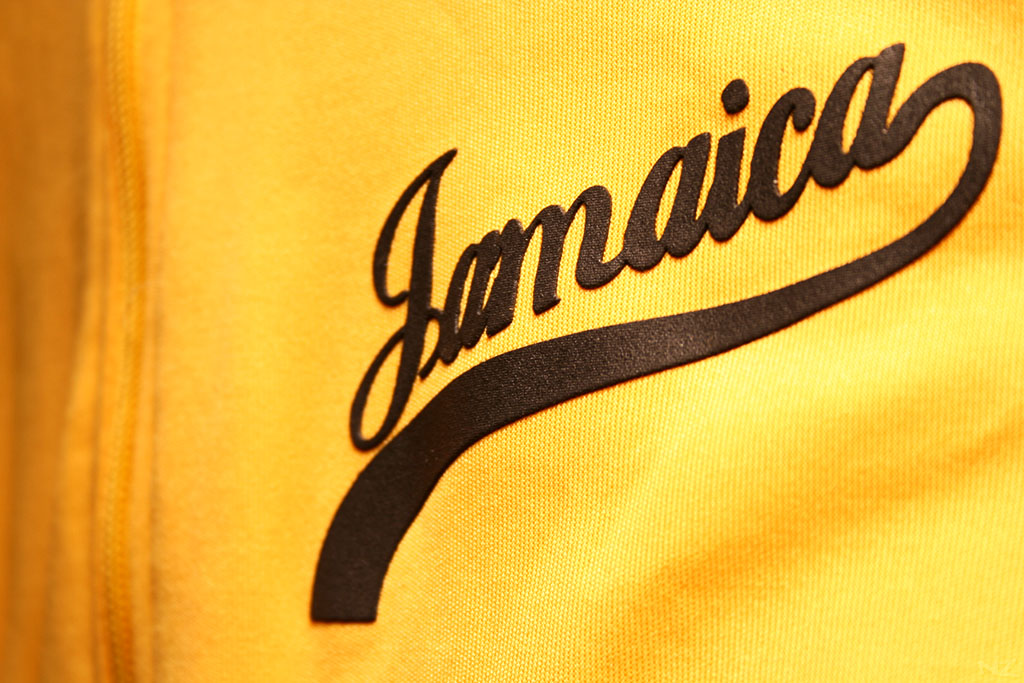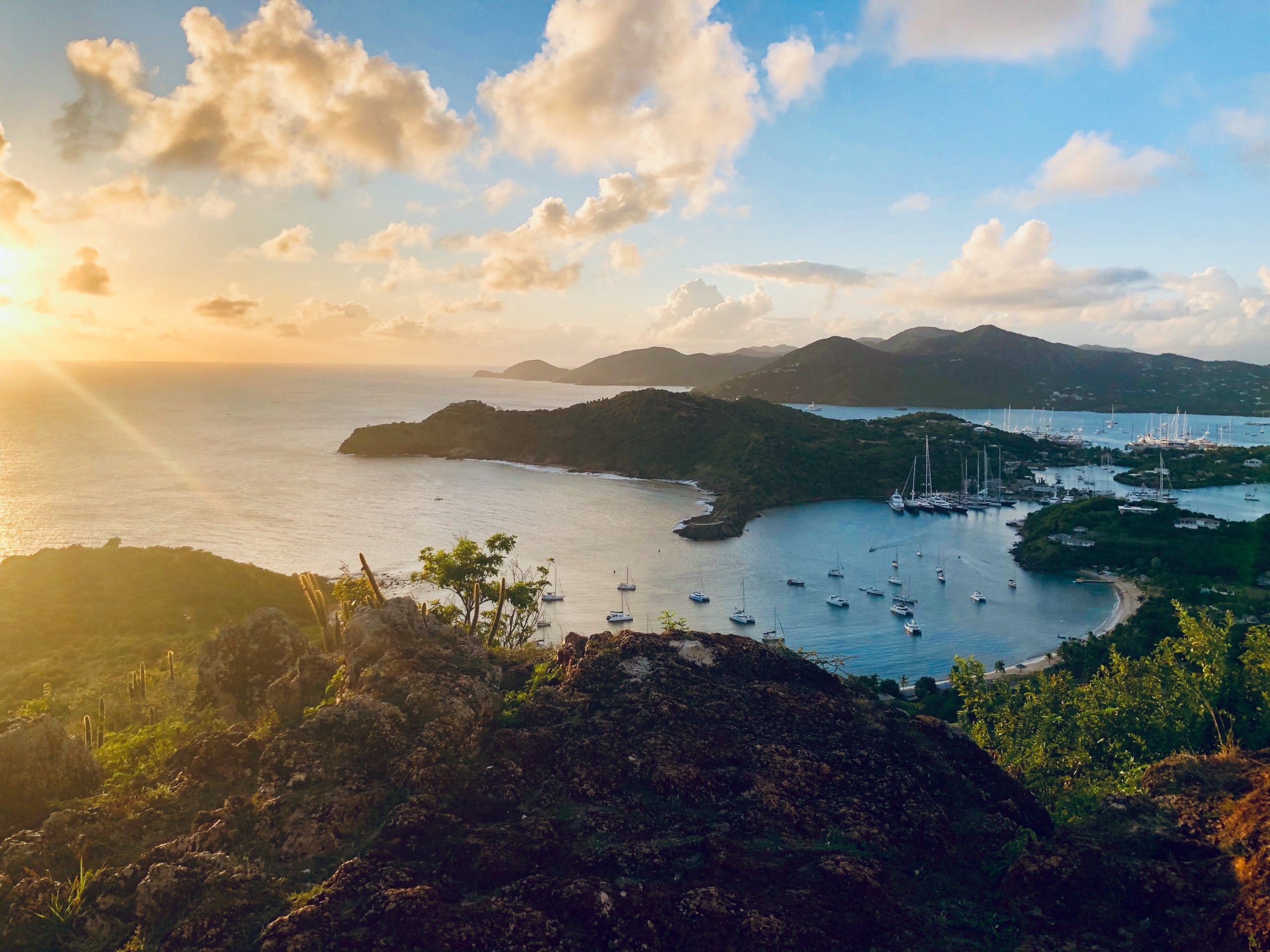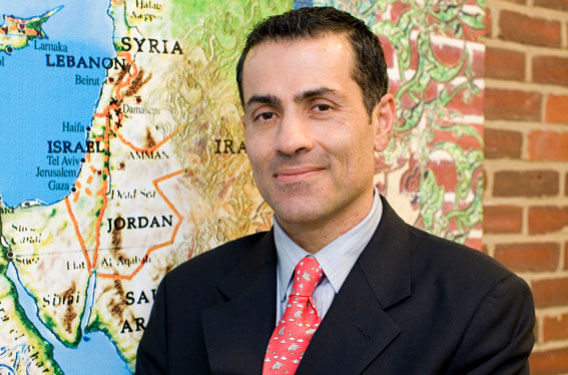Flying over Jamaica is a little bit like watching advertisements for your dream vacation. The beauty is literally breathtaking. Yes, there are resorts. Yes, the water is spectacular. And yes, the food is phenomenal. But those are just perks. And unfairly, those perks aren’t available to most of the population. The beauty of Jamaica, though, is its potential for change; its brilliance lies in the community members and organizations pushing to be better, day in and day out.
For some, the brain silences the heart. Monsignor Ramkisoon, however, has told his heart to speak up. Founder and Director of Mustard Seed Communities (MSC), Msgr. Ramkisoon has been working day in and day out on behalf of the 600 children in his community to make his dream a reality: He is helping people around the world have a safe place where individuals can develop educationally and spiritually. It’s refreshing to encounter someone with so much passion – with so much desire to be the change in his community that he so greatly desires. So often we think it is the brain that creates change, that empowers us; Msgr.’s life is a prime example of what love and heart can do. Msgr. Ramkisoon has shown through his work with Mustard Seed Communities that although nothing good comes easy, it is well worth treading the path to see what beauty will shine through along the way.
As we approached the gates of Mustard Seed Communities in Kingston, the walls were lined with messages of hope and positivity. Upon entering, the message was clear and simple: unconditional care. While touring the facilities with Natalia, director of programs, and Msgr. Ramkisoon, we learned about the great work that goes on inside the walls of Mustard Seed Communities for both young and old. From the school to ceramics classes to an in-house community based radio station, ROOTS FM, Mustard Seed Communities is a safe and enjoyable space for any and all visitors. Amidst the violence and crime in the inner-city of Kingston, a safe space is much needed.
Touring around the facilities with Natalia, we learned that all of the students at the school had parents who couldn’t support them, or didn’t have parents at home at all. It felt so common. My mind went back to my internship experience in Ghana, straight to Hope Community Rehabilitation Center, thinking of the youth who simply couldn’t be supported financially or emotionally. As we went into a classroom of 40 youngsters at MSC, they piled onto the three of us. While on the front lines serving lunch, Sam and Ali, fellow social entrepreneurship students at Northeastern, were bombarded and were on the ground in a swarm of children.
Somehow, almost magically, the teachers behind the scenes there in the classroom didn’t seem to mind. In fact, they loved it, smiles and all. This baffled me, and as Sam and Ali served up some lunch, I couldn’t help but wonder why. In my travels to so many underfunded, understaffed schools around the world, consistently teachers just seemed uninterested. Through no fault of their own, of course, but still, uninterested. Here at MSC, Monsignor Ramkisoon had instilled a passion within the team that pushed everyone forward for purpose, not for pay.
That truth became even more evident at our next stop. Walking under a narrow little passageway, we arrived at another lunch, this time for the physically and mentally disabled members of Mustard Seed Communities. Here we learned by seeing just what it meant to put your heart before all else. The caretakers at MSC, caring for people with cerebral palsy among many other handicaps, “just loved” as Natalia, Director of Operations, put it. It felt as if we were in the presence of a small group of Mother Teresas in action. Nothing kept these caretakers from smiling – nothing at all. My mind began to race again. First, thinking of my internship abroad with Echoing Hills Village in Ghana, Hope Community Rehabilitation Center’s partner, and then Senang Hati Community Center in Bali during a social entrepreneurship dialogue. There was a consistency amongst it all. I finally was able to put my finger on exactly what. It was the caretakers.
There are many places around the world caring for those with physical and mental handicaps. Rarely, though, is the vibe so positive. What these places had in common was the unique ability for the caretakers to keep spirits up through any and all difficulties, and people who live such difficult lives. Yet another beautiful reminder that people with purpose have the power to change the world around them for the better.
It would have been impossible for this experience in Jamaica to be anything close to productive without the continual support and dedication from Ali Matalon. She was undoubtedly the reason this trip was successful, and as she helped to make this the perfect experience to find projects for reweave this past summer, I’d like to turn to her thoughts and reflection from the experience. She wrote:
I suppose I had somewhat of a different experience from Abhi or Sam. Growing up in Jamaica, the beauty of the beaches and the swarming of the tourists in coastal towns became commonplace. This influx of different people who wanted to see our island was never uncomfortable for me. My discomfort lay in the disparities that so blatantly exist in my society, like many other societies around the world. The rolling hills and the mile-long beaches make our island famous, the heavy reggae beats and the vibe of the people make our island memorable, but the poverty- ridden landscapes that lie tucked away in our cities and towns are rarely recognized or even understood.
Showing Abhi and Sam around Jamaica was a gift more-so to me than to them. As someone who tries to understand the struggles of others, living in a city like Kingston often proves saddening. The violence in our society makes life extremely limiting, especially as a young female. Taking them to places like Mustard Seed Communities reminded me of the immense positive energy that so many of us are dying to share, the immense desire to be better.
This was finally my opportunity to understand the way so many communities worked in my own home. I remember taking Abhi to meet a man named Orlando Brown, familiarly known as King. King is an Xchanger for UNICEF and a member of one of Jamaica’s inner-city communities. I suppose he’s truly a King because he’s built an empire for himself around the desire to encourage peaceful conflict resolution and the growth of safer inner-cities in Jamaica. King led us into his community, trying to make us understand the living circumstances and what he is trying to do. The Eastern Peace Centre, which he and a gentleman named Randy run, supports childhood learning as well as adult literacy with its day and night school, encourages creativity and young artists’ growth through its recording studio, and provides access to its facilities and services to all community members. The greatest part of what King and Randy do, in my opinion, is their willingness to engage in honest dialogue with people in conflict or those who have a desire to be better themselves.
I was often uncomfortable during this trip. Poverty, crime and inequality are shameful. I live in it, I see it, but what exactly can I do to better it? I suppose I learnt that not only could I do my best to work with the organizations we visited, but I could also support organizations like reweave, the organization I’m a part of, to go to places like my home and share the passion to be better, the passion that the caretakers of MSC, Echoing Hills, and Senang Hati all share.
Abhi Nangia, International Affairs and Anthropology ’13 & Ali Matalon, Political Science and International Affairs ’16



